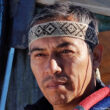Toward a Buen Vivir Finance
The climate and biodiversity crises are unfolding alongside the rise of an illiberal wave that weakens democracy and collective rights. Finance plays a central role in this trajectory: it drives the overshoot of planetary boundaries and fuels the violations of the rights of local communities and Indigenous peoples.
Recent developments illustrate this clearly. In 2024, the Net-Zero Banking Alliance (NZBA) decided to suspend its activities, under mounting political pressure in the United States. Several major banks, including UBS, have withdrawn from the alliance in recent months, marking a turning point for an initiative that was meant to align finance with climate objectives. At the same time, investment flows continue to support destructive industries worldwide — from fossil fuel expansion to arms manufacturing — as financial institutions prioritize corporate actors who undermine climate goals and disregard human rights.
How can we change course? What forms of finance is needed to move beyond extractivist and oligarchic logics, and instead build a plural and democratic economy rooted in buen vivir — one that sustains life, respects communities, and safeguards the planet?
Framing this topic
This short section provides context for the event to ensure all participants, regardless of prior knowledge, are equipped to engage with the discussion.
Ten years after Mark Carney’s “Tragedy of the Horizon,” voluntary disclosure is insufficient; regulation is needed to realign capital. Finance still drives ecological degradation and inequality. This session explores buen vivir — an Andean concept of harmony with nature and collective well-being — and post-growth, permacircular models embedding money within ecological and democratic limits. We contrast “green finance” (offsets, tech, rebound effects, weak fossil fuel exclusion) with ethical finance, which applies transparent social-environmental screening and excludes harmful sectors. Ethical banks were early adopters of PCAF, a leading standard for financed emissions, offering a path to transform the financial system.






